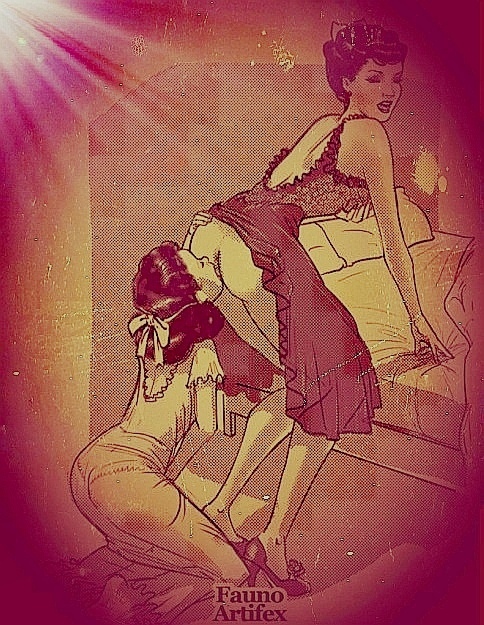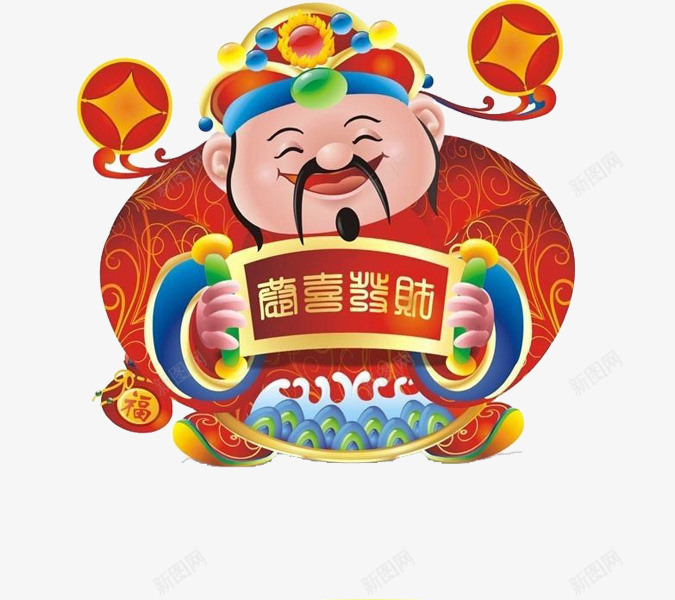[2022-07-01] NYT - “香港的一切都变了”:重塑之路
![]() By Hannah BeechPhotographs and Video by Sergey Ponomarev By Hannah BeechPhotographs and Video by Sergey Ponomarev
June 30, 2022
Updated 5:32 p.m. ET
由 Hannah Beech 拍摄的照片和视频由 Sergey Ponomarev
2022 年 6 月 30 日
下午 5 点 32 分更新 美东时间
HONG KONG — On the day that Hong Kong was returned to China a quarter century ago, the noodle maker of Queen’s Road worked as he had done for days and decades before, mixing flour and water into sustenance for a city filled with refugees from the mainland. To satisfy the diverse tastes, he made tender Shanghai noodles and Cantonese egg pasta, slippery wonton wrappers from China’s south and thick dumpling skins beloved in Beijing.
香港——25年前香港回归中国的那一天,皇后大道的面馆师傅像他几天前和几十年前一样工作,将面粉和水混合成一个充斥着来自大陆难民的城市的食物 . 为了满足不同的口味,他制作了嫩上海面和粤式鸡蛋面、中国南方的滑馄饨皮和北京人喜爱的厚饺子皮。
When the five-starred flag of the People’s Republic of China replaced the Union Jack on July 1, 1997, it rained and rained, the water rising fast along Queen’s Road and its tributaries. Some people took the deluge as an omen of Communist control, others as a purifying ritual to cleanse Hong Kong of Western imperialism.
1997 年 7 月 1 日,当中华人民共和国的五星国旗取代英国国旗时,下着大雨,沿着皇后大道及其支流快速上涨。 一些人认为洪水泛滥是共产党控制的预兆,另一些人则认为这是净化香港的西方帝国主义的净化仪式。
The storm held no greater meaning for To Wo, who ran the noodle shop with his family. Mr. To still had to work every day of every year, feeding dough into clanging machines and emptying so many bags of flour that everything was dusted white, even the shrine to the kitchen god.
对于和家人一起经营面馆的陶和来说,这场风暴没有更大的意义。 杜先生每年仍然每天都在工作,把面团喂进叮叮当当的机器里,倒出这么多袋面粉,以至于所有东西都被尘土飞扬,甚至是灶神的神殿。
“I was busy,” he said. “I didn’t have a lot of time for fear.”
“我很忙,”他说。 “我没有太多时间害怕。”
In the 25 years since the handover, the only constant has been change, both defined and defied by the people of Queen’s Road, Hong Kong’s most storied avenue. All around them, a city has been transformed: by the dizzying economic expansion of mainland China threatening to make this international entrepôt unnecessary, but also by the crushing of freedoms by Hong Kong’s current rulers, who have filled jails with young political prisoners.
回归后的 25 年里,唯一不变的就是变化,这是香港最具传奇色彩的大道皇后大道的人们所定义和挑战的。 在他们周围,一座城市已经发生了翻天覆地的变化:中国大陆令人眼花缭乱的经济扩张威胁到这个国际转口站的必要性,但也因为香港现任统治者对自由的践踏,他们在监狱里塞满了年轻的政治犯。
![]()
![]()
At age 20, Mr. To escaped privation in southern China to settle on Queen’s Road, the first thoroughfare built by the British after they seized Hong Kong as spoils from the Opium War.
20 岁时,杜先生逃离中国南方的贫困,定居在皇后大道上,这是英国在鸦片战争中夺取香港作为战利品后修建的第一条大道。
Named for Queen Victoria, the road traced the shoreline of an avaricious colonial power. As the institutions of empire — banks, trading houses, schools, places of worship — sprouted along it, Queen’s Road was evolving, each influx of new arrivals reshaping its character. For all the permanence of the road’s landmarks, its people were less grounded, with scant control over the city’s future.
这条路以维多利亚女王的名字命名,沿着一个贪婪的殖民大国的海岸线。 随着帝国的机构——银行、贸易行、学校、礼拜场所——沿着它萌芽,皇后大道正在发展,每一位新来者的涌入都在重塑它的性格。 尽管这条道路的地标一直存在,但它的人们却不那么脚踏实地,对城市的未来几乎没有控制权。
In 1997, the Chinese government promised Hong Kong significant autonomy for 50 years to preserve the liberties that made it a global financial capital, not to mention one of the most thrilling metropolises on the planet.
1997 年,中国政府承诺香港享有 50 年的重大自治权,以维护使其成为全球金融之都的自由,更不用说这个星球上最令人兴奋的大都市之一了。
As long as Mr. To had been there, Queen’s Road and its narrow alleyways had been a global crossroads. There were financial houses built on fortunes from the opium trade, gold shops promising solid investments for survivors of political turmoil, European luxury labels and merchants of shark’s fin and herbs used in traditional Chinese medicine.
只要杜先生还在,皇后大道及其狭窄的小巷就一直是全球的十字路口。 有建立在鸦片贸易财富之上的金融机构、承诺为政治动荡的幸存者提供可靠投资的金店、欧洲奢侈品牌以及鱼翅和中药材的商人。
In the first few years after the handover, legislators reveled in a power they had lacked for most of British rule, in a building designed by architects responsible for a part of Buckingham Palace. At the High Court, on a stretch of Queen’s Road called Queensway, judges wore wigs in the British fashion. The business establishment, drawn from the elite of Shanghai, London and Mumbai, among other cities, felt secure in the rule of law.
在移交后的最初几年,立法者陶醉于他们在英国统治时期所缺乏的权力,在一座由负责白金汉宫一部分的建筑师设计的建筑中。 在高等法院,在皇后大道的一段被称为金钟道的地方,法官们戴着英国时尚的假发。 来自上海、伦敦和孟买等城市精英的商业机构在法治中感到安全。
For more than a decade, Beijing largely abided by this political accommodation governing Hong Kong, called “one country, two systems.” The deadline of 2047, when Beijing would take full political control, seemed suitably distant, even if Hong Kongers have a habit of angling with forward intent.
十多年来,北京在很大程度上遵守了这种治理香港的政治和解,即所谓的“一国两制”。 2047 年北京将完全控制政治的最后期限似乎相当遥远,即使香港人习惯于向前看。
The past three years have compressed time. In 2019, millions of protesters marched on Queen’s Road and other avenues, just as they had done in the past to thwart unpopular government restrictions. This time, clashes between the police and protesters severed any filaments of trust. For months, tear gas, pepper spray and rubber bullets enveloped commercial hubs. In 2020, a national security law was introduced that has criminalized dissent, with people arrested for clapping in support of an imprisoned activist.
过去三年压缩了时间。 2019 年,数百万抗议者在皇后大道和其他大街上游行,就像他们过去为阻止不受欢迎的政府限制所做的那样。 这一次,警察和抗议者之间的冲突切断了任何信任的细丝。 几个月来,催泪瓦斯、胡椒喷雾和橡皮子弹笼罩着商业中心。 2020 年出台了一项国家安全法,将异议定为刑事犯罪,人们因鼓掌支持被监禁的活动人士而被捕。
Now, halfway to 2047, Hong Kong has entered an uncertain purgatory. Its demise has been proclaimed before. Each time — after plagues and Communist-backed riots, British repression and pre-handover jitters — the territory has regenerated itself.
现在,2047年的中途,香港进入了一个不确定的炼狱。 它的消亡之前已经被宣布。 每一次——在瘟疫和共产党支持的骚乱、英国的镇压和交接前的紧张不安之后——这片领土都在重新焕发活力。
![]()
![]()
A metropolis rivaling New York, Tokyo and London will not disappear overnight. But Beijing’s vow to keep the city in a political bell jar for 50 years has been shattered. The poor in Hong Kong are getting poorer, and the numbers rushing to leave have surged.
一个与纽约、东京和伦敦相媲美的大都市不会在一夜之间消失。 但北京将这座城市关在政治钟罩里50年的誓言已经破灭。 香港的穷人越来越穷,赶走的人数激增。
The seismic shifts in Hong Kong are forcing residents to reflect on what it means to be from this ever-evolving place. Along Queen’s Road — the oldest avenue in a city wired for reinvention — this question of identity resonates very differently for a politician, a protester and a noodle maker.
香港的巨变正迫使居民反思来自这个不断发展的地方意味着什么。 沿着皇后大道——这座城市中最古老的大道——为改造而建——这个身份问题对政治家、抗议者和面条制造商来说有着截然不同的共鸣。
“Everything in Hong Kong has changed,” Mr. To said. “We all have different fates.”
“香港的一切都变了,”杜先生说。 “我们都有不同的命运。”
‘Face the Reality’
“面对现实”
On June 30, 1997, as “God Save the Queen” played one final time, Eunice Yung, then a high school student, was sulking at home in an apartment along Queen’s Road. Disappointing test results, which precluded a university spot in Hong Kong, occupied her mind.
1997 年 6 月 30 日,随着《天佑女王》的最后一场演出,当时还是一名高中生的 Eunice Yung 在皇后大道沿线的公寓里闷闷不乐。 令人失望的考试结果让她无法在香港上大学。
“When I think back on the handover, it’s a blank,” Ms. Yung said. “It’s such a shame.”
“当我回想起移交时,它是一片空白,”容女士说。 “真是太可惜了。”
Like many children born to recent arrivals, Ms. Yung began working when she was 4 or 5 years old, sitting with her great-grandmother at a table popping metal disks into the backs of toy magnets. Walking to her Catholic school, Ms. Yung would pass markets on Queen’s Road selling dried seafood and a temple where fishermen came to worship by boat, back before reclamation pushed the avenue inland.
和许多新来港定居的孩子一样,容女士在 4 或 5 岁时就开始工作,和曾祖母坐在桌旁,将金属盘塞进玩具磁铁的背面。 走到她的天主教学校,容女士会经过皇后大道上出售干海鲜的市场和一座渔民乘船前来朝拜的寺庙,回到填海工程将大道推向内陆之前。
![]()
![]()
Ms. Yung eventually found a university spot in Vancouver to study computer science. Unwittingly, she joined a stream of Hong Kongers emigrating for fear of the territory’s new rulers.
容女士最终在温哥华找到了一个大学学位来学习计算机科学。 不知不觉中,她加入了因害怕香港新统治者而移民的香港人潮。
After each paroxysm in China — the fall of the Qing dynasty, the Communist takeover, the Cultural Revolution, the Tiananmen massacre — Hong Kong’s population swelled with refugees. The years leading to the handover, when hundreds of thousands of people fled for safety in the West, were the only time, until now, when the population declined.
在中国每一次爆发之后——清朝垮台、共产党接管、文化大革命、天安门大屠杀——香港的人口激增,难民人数激增。 移交前的那几年,数十万人逃往西方避难,这是迄今为止唯一一次人口减少的时期。
Ms. Yung wasn’t in Canada because she was scared for Hong Kong. She returned home, earning a law degree and appearing in court on Queensway. In 2016, she won a seat in the Legislative Council nearby as a member of a pro-Beijing political force.
容女士不在加拿大,因为她害怕香港。 她回到家中,获得法律学位,并在金钟道出庭。 2016年,她作为亲北京政治力量的成员,在附近的立法会获得一个席位。
Ms. Yung, 45, has decried artwork in government-funded museums that disparages the Chinese Communist Party. She said that public ridicule of China’s leaders is the result of “people losing their minds.”
现年 45 岁的容女士谴责政府资助的博物馆中贬低中国共产党的艺术品。 她说,公开嘲笑中国领导人是“人们失去理智”的结果。
![]()
![]()
“Some of the foreign press say that ‘China is always a monstrous thing, and you are under their control and you have no freedom,’” Ms. Yung said. “But in Hong Kong we have to face the reality that we are part of China.”
“一些外国媒体说,‘中国总是一个怪物,你在他们的控制之下,你没有自由,’”容女士说。 “但在香港,我们必须面对我们是中国一部分的现实。”
Without evidence, pro-Beijing politicians have accused those who joined protests of colluding with the Central Intelligence Agency. The fearsome security law has led unions and newspapers to shutter for fear of lifetime prison sentences. Nearly 50 politicians and democracy activists have been imprisoned under the new rules. They will appear at the High Court on Queensway later this year.
在没有证据的情况下,亲北京的政客指责那些参加抗议活动的人与中央情报局勾结。 可怕的安全法导致工会和报纸因担心终身监禁而关闭。 近50名政治家和民主活动人士已根据新规则被监禁。 他们将于今年晚些时候在金钟道高等法院出庭。
Today, there are no mass protests on Queen’s Road or anywhere else in Hong Kong.
今天,皇后大道或香港其他任何地方都没有大规模抗议活动。
“I think Hong Kong is still a very free city,” Ms. Yung said. “These kinds of demonstrations, if we allow them to a certain extent, it will damage our feelings to our country.”
“我认为香港仍然是一个非常自由的城市,”容女士说。 “这种示威,如果我们在一定程度上允许它们,就会损害我们对国家的感情。”
Hong Kong has been cleaved between those who supported the protesters and those who worried that Hong Kong’s business-friendly reputation was destroyed. In 2019, HSBC, Hong Kong’s most venerable bank and an early paragon of globalization, was accused of closing an account linked to pro-democracy crowdfunding. Protesters splashed red paint on the giant lions guarding the bank’s headquarters on Queen’s Road.
香港在支持抗议者的人和担心香港的商业友好声誉被破坏的人之间分裂。 2019 年,香港最受尊敬的银行和全球化的早期典范汇丰银行被指控关闭了一个与亲民主众筹有关的账户。 抗议者在皇后大道上守卫银行总部的巨狮上泼红漆。
![]()
![]()
“When people teach their kids to disrespect their country, tell them we are going to overthrow our government, it does damage,” Ms. Yung said. “Rather than expression without limits, we should uphold the dignity of our country.”
“当人们教他们的孩子不尊重他们的国家,告诉他们我们要推翻我们的政府时,这确实会造成损害,”容女士说。 “我们应该维护国家的尊严,而不是无限制地表达。”
‘Question our identity’
“质疑我们的身份”
On July 1, 2019, the anniversary of the handover, hundreds of thousands of Hong Kong residents rallied for a pro-democracy march along Queen’s Road. There were middle class families with thermoses of water, pensioners in undershirts and students holding yellow umbrellas symbolizing the protest movement.
2019 年 7 月 1 日,香港回归周年纪念日,数十万香港居民在皇后大道上集会,参加民主游行。 有拿着热水瓶的中产阶级家庭、穿着汗衫的养老金领取者和拿着象征抗议运动的黄色雨伞的学生。
Breaking away from the crowds, Brian Leung turned onto a side street that led to the new Legislative Council building, joining other protesters who hid their identities behind masks. They besieged the building, shattering glass, twisting metal gates and scrawling anti-Communist Party graffiti.
离开人群后,Brian Leung 转入一条通往新立法会大楼的小街,加入了其他用面具隐藏身份的抗议者。 他们围攻大楼,打碎玻璃,扭曲金属大门,潦草地涂鸦反共。
As the police closed in, Mr. Leung clambered onto a table, ripped off his mask and delivered a democracy manifesto. He was the only protester who showed his face.
当警察接近时,梁先生爬到一张桌子上,撕下他的面具,发表了一份民主宣言。 他是唯一一个露面的抗议者。
![]()
![]()
The son of migrants from China who never finished high school, Mr. Leung, now 28, exemplified the promise of Hong Kong. Growing up in public housing, he became the first member of his family to attend the University of Hong Kong.
现年 28 岁的梁先生是从未读完高中的中国移民之子,他体现了香港的前景。 他在公屋长大,成为家庭中第一位就读香港大学的成员。
It was a time when many Hong Kong youths felt proud of their dual identity: Chinese, yes, but a special kind who cherished British common law and custardy egg tarts with Portuguese provenance.
那段时间,许多香港青年为自己的双重身份感到自豪:中国人,是的,但一种特殊的人,珍视英国普通法和葡萄牙血统的蛋挞。
When Beijing held the Summer Olympics in 2008, Mr. Leung cheered the teams of both Hong Kong and China.
2008年北京举办夏季奥运会时,梁先生为中港两队加油助威。
“I think we all wanted to give China a chance, and we thought with the return to the motherland, we in Hong Kong could be part of this great nation,” he said.
“我想我们都想给中国一个机会,我们认为随着回归祖国,我们香港可以成为这个伟大国家的一部分,”他说。
Hong Kong civil society, powered by youth, made a difference. A group of teenagers helped persuade the government to shelve a pro-Beijing curriculum.
以青年为动力的香港公民社会发挥了作用。 一群青少年帮助说服政府搁置亲北京的课程。
The summer marches of 2019, like a student sit-in campaign five years before, led to a more poignant denouement. Police responded to the leaderless protesters with increasing force, arresting thousands of teenagers. By the time the coronavirus pandemic restricted gatherings in 2020, a hush had fallen over Hong Kong.
2019 年的夏季游行,就像五年前的学生静坐运动一样,带来了更加凄美的结局。 警方以越来越大的力量回应没有领导的抗议者,逮捕了数千名青少年。 到 2020 年武汉肺炎大流行限制集会时,香港已经一片寂静。
Today, only 2 percent of Hong Kong youth consider themselves to be “Chinese,” a local poll found. More than three-quarters identified as “Hong Kongers.” There is pride in Cantonese, the patois of Hong Kong, rather than the Mandarin of the mainland.
一项当地民意调查发现,如今,只有 2% 的香港青年认为自己是“中国人”。 超过四分之三的人被确定为“香港人”。 粤语是香港的方言,而不是大陆的普通话。
“When it became clear that China was no longer interested in liberal reforms, we began to question our identity as Chinese,” said Mr. Leung, who edited a collection of essays called “Hong Kong Nationalism.” “We began to think, ‘we are Hong Kongers.’”
“当中国显然不再对自由改革感兴趣时,我们开始质疑我们作为中国人的身份,”梁先生说,他编辑了一本名为《香港民族主义》的论文集。 “我们开始想,‘我们是香港人。’”
For the millions who fled upheaval in China, Hong Kong served for more than a century as a refuge but also a way station to a better place. Eventually, Hong Kong’s transience settled. The territory became home to millions of Chinese, many of whom adopted Western names for the ease of the British bureaucracy: Kelvin and Fiona, Gladys and Alvin, Brian and Eunice.
对于逃离中国动荡的数百万人来说,一个多世纪以来,香港既是避难所,也是通往更美好地方的中转站。 最终,香港的短暂安定。 该领土成为数百万中国人的家园,其中许多人为了英国官僚机构的便利而采用了西方名字:Kelvin 和 Fiona、Gladys 和 Alvin、Brian 和 Eunice。
Now, Hong Kong is shedding residents. In one month this year, about as many people departed from the airport as migrated to Hong Kong in all of 2019. Continuing coronavirus restrictions mean that hardly anyone is coming. Many of those activists not in prison are in exile. Taxi drivers, accountants and professors have left for new lives abroad.
现在,香港正在流失居民。 今年一个月内,离开机场的人数大约与 2019 年全年迁移到香港的人数一样多。持续的武汉肺炎限制意味着几乎没有人来。 许多未入狱的活动人士正在流亡中。 出租车司机、会计师和教授纷纷离开国外,开始新的生活。
![]()
![]()
Hours after the police cleared the Legislative Council with tear gas in July 2019, Mr. Leung left Hong Kong, his heart thumping as the plane lifted into the air.
2019 年 7 月,警方用催泪瓦斯清理了立法会几小时后,梁先生离开了香港,飞机升空时他的心怦怦直跳。
“I couldn’t stop the tears,” said Mr. Leung, who now lives in the United States. “I love Hong Kong so much. That’s why I was fighting for it and that’s why I had to leave.”
“我忍不住流下了眼泪,”现居美国的梁先生说。 “我非常喜欢香港。 这就是我为之奋斗的原因,也是我不得不离开的原因。”
He has not returned since.
从那以后他就再也没有回来过。
‘That was my fate’
“那是我的命运”
Mr. To, the noodle maker, risked his life to escape China in 1978. He trained for more than a year, honing his swimming and bulking up for the hike across the hills. His first foray failed. On his second, rains molded the moon cakes packed for the journey. Finally, after seven nights in the forests, he saw Hong Kong across the water.
面匠杜先生于 1978 年冒着生命危险逃离中国。他接受了一年多的训练,磨练了自己的游泳能力,并为徒步穿越山丘做好了准备。 他的第一次尝试失败了。 在他的第二个,雨水塑造了为旅行打包的月饼。 终于,在森林里呆了七个晚上,隔着水看到了香港。
“We swam toward the light,” he said.
“我们向光游去,”他说。
![]()
![]()
Queen’s Road dazzled Mr. To with its colorful signs broadcasting all manner of delicacies: abalone and silver needle tea, Scottish whiskey and cream cakes.
皇后大道上五颜六色的招牌让杜先生眼花缭乱,各种美味佳肴:鲍鱼银针茶、苏格兰威士忌和奶油蛋糕。
The China he left was desperately poor. Only twice in his childhood was his belly fully sated. When his wife’s sister visited family back in China, she balanced bamboo poles laden with jugs of cooking oil on her shoulders and wore multiple layers of clothes to distribute to relatives.
他离开的中国非常贫穷。 在他的童年时代,他的肚子只有两次饱足。 当他妻子的姐姐回中国探亲时,她肩上扛着装满一壶食用油的竹竿,穿着多层衣服分发给亲戚。
Today in parts of Guangdong, the southern Chinese province neighboring Hong Kong, the world’s fastest and most sustained economic boom has lifted living standards higher than those of some people in the former British colony. Along Queen’s Road, punishing rents and a business slowdown have forced artisan families from their old shops.
今天,在与香港相邻的中国南方省份广东的部分地区,世界上最快、最持续的经济繁荣已经将生活水平提高到了高于前英国殖民地的一些人的水平。 沿着皇后大道,高昂的租金和商业放缓迫使手工业者家庭离开他们的旧商店。
Mr. To is now past China’s retirement age. His son, To Tak-tai, 35, will one day take over the noodle shop, praying to the same flour-covered kitchen god.
杜先生现在已经过了中国的退休年龄。 他的儿子,35 岁的杜德泰,有朝一日会接管这家面店,向同样的面粉覆盖的厨神祈祷。
Unlike his parents, he was born in Hong Kong. He entertains no thoughts of leaving.
与他的父母不同,他出生在香港。 他没有离开的想法。
“Hong Kong is home,” he said.
“香港就是家,”他说。
For now, Mr. To toils day after day, feeding the noodle-making machines. Hong Kong has a patchy social safety net. He can’t remember the last time he enjoyed a proper holiday.
现在,杜先生日复一日地辛勤工作,喂面条机。 香港的社会安全网不完整。 他不记得他上一次享受适当的假期是什么时候了。
Mr. To lives with his family in a cramped apartment but has built a six-story mansion in his native village in Guangdong. His siblings, who never left China, are living comfortably off state pensions. He dreams of retiring there, too.
杜先生和家人住在一间狭窄的公寓里,但在他的广东老家建了一座六层的豪宅。 他的兄弟姐妹从未离开过中国,靠国家养老金过着舒适的生活。 他也梦想在那里退休。
“In Hong Kong, if I don’t work, I have nothing,” Mr. To said, his bare torso and eyelashes frosted with flour. “But coming to Hong Kong, that was my fate.”
“在香港,如果我不工作,我什么都没有,”杜先生说,他赤裸的躯干和睫毛上沾满了面粉。 “但来到香港,那是我的命运。”![]() 标红字体均为楼主更改,与原文作者无关。 标红字体均为楼主更改,与原文作者无关。
赞(66)
|







